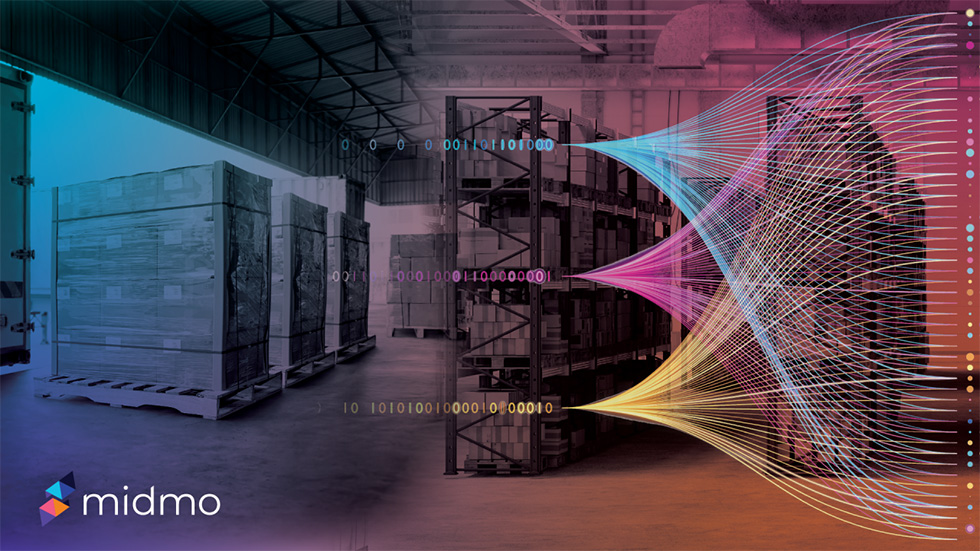Emerging from Manifest: The Future of Supply Chain & Logistics earlier this month in Las Vegas, it is undeniably compelling that artificial intelligence (AI) is propelling us all into a new era of supply chain efficiency and resilience.
Companies are actively seeking out new innovative solutions to elevate their operations and augment aspects of their people and processes. Enhanced by a universe of IoT solutions, artificial intelligence has emerged as a formidable ally to all walks of Supply Chain and Logistics professionals.
For businesses managing intricate global supply chains, embracing the empowering capabilities of AI is a key consideration. It’s also worth noting that every day I see numerous articles highlighting artificial intelligence (AI) as THE solution to unravel supply chain complexities. While this is indeed layered with truths, the focus often centers on the destination rather than the transformative journey.
Let’s begin by cutting through some of the noise and dispel a few of the common misconceptions surrounding AI. Prominently showcased at the expo, AI has cleanly surpassed science fiction and is seamlessly integrating into our daily professional lives. From virtual assistants to recommendation engines, AI is reshaping industries, with seemingly the supply chain sector leading this transformative wave. According to McKinsey, early AI adopters are witnessing profit increases of up to 11%, with a staggering $13 trillion potential boost to global economic activity by 2030.
AI is not however a mystical force destined to either solve all the world’s problems or dominate humanity. Instead, it’s a potent instrument for change, with some potential misconceptions overshadowing its role in supply chain transformation.
AI is not however a mystical force destined to either solve all the world’s problems or dominate humanity. Instead, it’s a potent instrument for change…
So first off, we need to understand that AI isn’t a one-size-fits-all solution. It’s true power lies not solely in intricate algorithms but in how these algorithms collaborate with technology and data to offer transformative insights. Business leaders should thoroughly vet vendors, seeking evidence not just on the type of AI they offer but also on how it integrates profound, high-quality data to deliver tangible value.
AI’s effectiveness hinges on vast amounts of real-time operational and historical data. Quality AI decisions, enhancing business agility, necessitate data beyond internal boundaries, encompassing every partner at every level. Amid flashy marketing and sophisticated algorithms, it’s crucial not to overlook this fundamental fact, as vendors often emphasize the romanticized version of AI rather than its pragmatic application.
Back to basics, these are the four types of AI currently in use:
- Supervised AI: Trained pattern recognition using labeled input and output datasets to predict outcomes accurately.
- Unsupervised AI: Untrained exploration of unlabeled datasets to uncover hidden clusters or patterns independently.
- Reinforcement AI: Repeated trial and error exploring different options without predefined data, learning from the best outcome.
- Generative AI: “Human chat-like interaction” with large language models for unstructured data queries and exploring vast datasets.
In deploying enterprise AI, the massive volumes of data and the speed of complex decisions are staggering. AI accomplishes in minutes what would take human efforts years, making it an attractive solution for businesses with expansive supply chains. As AI integration continues to accelerate, predictive analytics, computer vision, IoT, and blockchain will reshape supply chain operations.
AI will most definitely continue to augment human capabilities, enabling professionals to focus on innovation and customer-centric initiatives as exemplified below.
- Demand Forecasting and Inventory Optimization: AI analyzes extensive datasets for precise demand forecasts, improving inventory planning and reducing excess stock.
- Predictive Maintenance and Asset Tracking: AI-driven predictive maintenance minimizes downtime, and IoT devices provide real-time visibility into asset locations, minimizing product loss.
- Logistics and Route Optimization: AI optimizes shipping plans based on real-time data, minimizing transit times and adapting to unexpected disruptions.
- Automating Manual Processes: AI automates mundane tasks, from invoice processing to routine customer inquiries, enhancing speed and productivity.
- Enhanced Supplier Relationships and Risk Management: AI provides insights into supplier health and risk profiles, fostering strategic decision-making.
- Demand Sensing and Dynamic Pricing: AI algorithms continuously analyze data for real-time production and inventory planning, preventing underpricing and overstocking.
From my vantage point, Midmo is continually evaluating how to help support and enable these initiatives by providing confidence regarding foundational data intelligence and item accuracy. However, four crucial considerations must be met before implementing AI into business operations.
- Data is Crucial: In deploying enterprise AI, the enormity of data and the rapidity of complex decisions are astounding. Essential data includes extended supply chain data, internal operations & ecosystem partners, and insights from 3rd party sources.
- Privacy First: Amidst this, it’s crucial to prioritize privacy and security. A robust data governance and policy are vital safeguards against potential risks.
- Transparency in AI: Trust in AI outcomes becomes paramount and can be achieved through attribution science. This ensures a clear understanding of the reasoning behind AI decisions.
- Closed-Loop Excellence: Implementing AI requires turning decisions into action and continuous feedback loops for optimal value realization. Closed-loop orchestration is pivotal for strategic programs like autonomous planning and execution.
In Summary, be bold and persist; optimizing with AI requires commitment.
As global business complexity rises, AI becomes indispensable for its ability to swiftly process information. Increasing data complexity, math complexity, and decision complexity highlight the need for AI.
Embrace the optimism of AI. The future’s full of insights.
#Manifest2024 #automation #SupplyChain #Logistics #AIinSupplyChain #Innovation #FutureofSupplyChain #midmo #traceability


